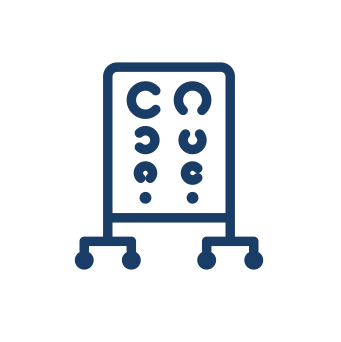
Welcome ToVision Development Center
Vision Development Center (located in the Birmingham Vision Care facility) specializes in helping people to achieve the best possible vision through vision therapy. Vision therapy can help people of all ages overcome many visual challenges and has proven to be a highly successful approach for resolving problems that interfere with reading and learning.
Binocular Vision Dysfunction
Binocular Vision Dysfunction is a condition where the eyes are unable to align properly. This causes the sufferer to correct or over compensate for this misalignment creating strain on the muscles in the eye because he or she is constantly trying to re-align the eyes to eliminate blurriness and double-vision.
Learn More


featured services what we offer

AMBLYOPIA
Amblyopia, or Lazy Eye, is the loss or lack of development, of vision in one eye. Amblyopia is unrelated to any eye health problem and is not correctable with lenses. Lazy eye is often associated with crossed eyes. Patients can benefit from Vision Therapy for Amblyopia at any age, however, early detection offers the best chances for results or improvement.

TRAUMATIC BRAIN INJURY
Post-concussion syndrome (PCS) is a complex condition that can occur after a traumatic brain injury (TBI), such as a concussion. While the initial injury may have healed, the lingering symptoms can significantly impact your daily life, making it challenging to return to your normal routines and activities.

CONVERGENCE INSUFFICIENCY
Convergence insufficiency occurs when your eyes do not properly align while focusing on a near object. When you read or look at a close object, your eyes should converge — turn inward together to focus, resulting in a single image.

BINOCULAR VISION DYSFUNCTON
Binocular Vision is the ability to align both eyes on a visual point and combine the images seen by each eye into a single multidimensional image. Vision Therapy can help these patients train both eyes to be able to work together.

PRESCRIBING PRISM
As part of our comprehensive eye exam, Birmingham Vision Care examines every patient’s need for prism. Prism is helpful for some patients who have difficulty with eye alignment or binocular vision dysfunction.

DIPLOPIA
Diplopia, or double vision, is the result of both eyes independently focusing on different images instead of both eyes being fused into a single picture by the brain.

LEARNING-RELATED VISION
Difficulties in reading, writing or learning can be the result of a vision problem. Vision Therapy can be used as a non-invasive treatment for children thought to have a learning disorder. With a diagnosis of a vision related problem parents can finally see that a learning disorder really is not the problem, rather a symptom.

Meet Dr. Patricia Poma-Nowinski,FCOVD-Board Certified in Vision Therapy
Dr. Patricia Poma-Nowinski is a Michigan native and co-owner of Birmingham Vision Care since January 2006. She received a Bachelor of Science degree at the University of Michigan, Ann Arbor. While an undergraduate student, she spent a semester abroad in Florence, Italy. She also worked at the Kellogg Eye Center doing genetic research on retinitis pigmentosa, a devastating disease that may lead to blindness.








